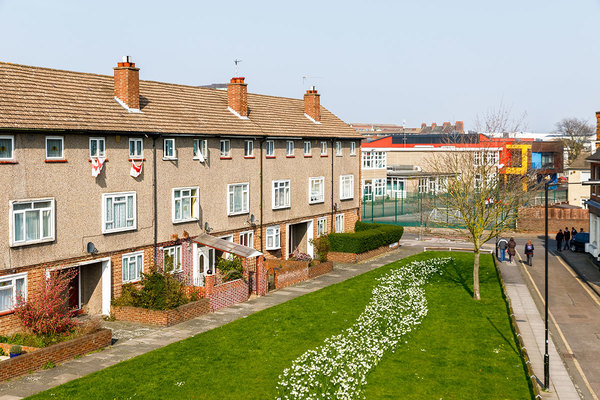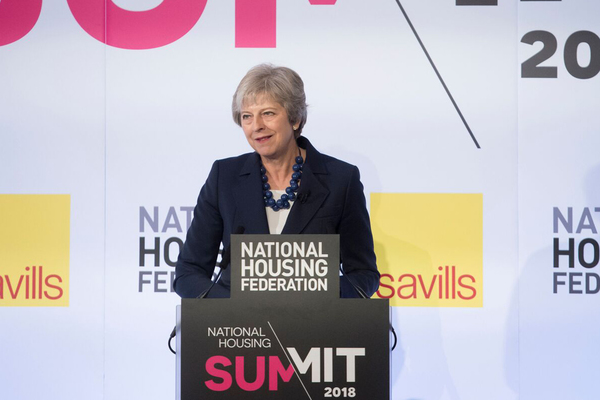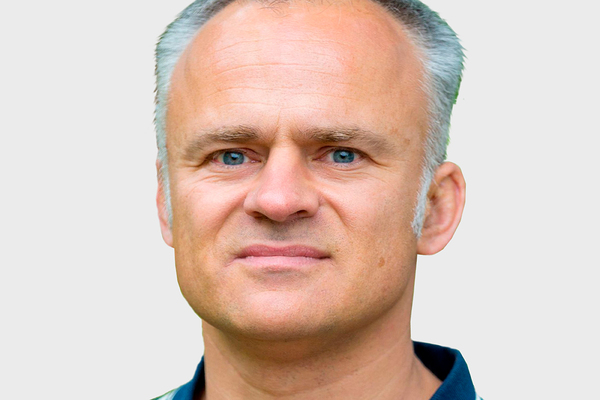 Jules Birch
Jules BirchMay’s HRA announcement deserves its warm welcome – but the Budget will be the real test
Jules Birch picks over the prime minister’s surprise announcement on council borrowing
After Theresa May’s warm words for housing associations, the big question was why she could not offer something similar for council housing.
She answered it today with the surprise announcement at the end of her Conservative Party conference speech that the borrowing cap will be scrapped.
Vital details remain to be seen. When and how the cap will be lifted? What’s in the small print? What strings will be attached to the deal?
However, the move deserves the initial warm welcome it has already received from organisations across local government and housing.
“Vital details remain to be seen.”
The surprise reflects what was assumed to be entrenched Treasury resistance to lifting the cap, despite years of patient advocacy from campaigners, commitment from Labour and outspoken support from the Lord Gary Porter, Conservative chair of the Local Government Association (LGA).
Chancellor Philip Hammond did act to raise the borrowing cap by £1bn in last year’s Autumn Budget but to little effect so far.
In response to that, the Treasury committee said in January that the cap should be removed and existing policies could not deliver the government’s target of 300,000 new homes a year.
Raising the cap would have no material impact on the national debt but could result in a substantial increase in the supply of housing, allowing local authorities to determine the level of additional housing needed in their area.
As Labour’s John Healey pointed out on Twitter, it was the Conservatives who capped council borrowing when self-financing was first introduced and that the devil will be in the detail.
Presumably, at a minimum, scrapping the cap means allowing councils to borrow up to prudential limits against their housing assets in exactly the same way as they can for other things.
It’s absurd that they can borrow to buy offices or shopping centres and set up companies to deliver market rented homes but not borrow to build council houses.
Councils are currently building less than 2,000 new homes a year in England.
Estimates vary: research for Shelter in 2014 suggested that scrapping the cap could allow them to build 27,500 a year, while a study by Savills last year suggest councils could deliver 15,000 new homes.
The announcement also opens another front in the struggle for control of the Conservative Party between Ms May and her Brexiteer critics.
In his speech to the conference fringe yesterday, Boris Johnson delivered his message to “chuck Chequers” and also put housing at the top of his domestic policy agenda as what he called an “open goal” for the Conservatives.
But he had a very different sort of housing policy in mind, one that assumes homeownership creates Conservative voters “and if you stay in social rented accommodation you are more likely to vote Labour”.
For Mr Johnson, the very idea of council housing recalls a family he met in a damp council flat in Wolverhampton during his early days as a journalist.
“It was a terrible scene. They were sitting there and with the heating on full blast and a baby crying, and the condensation dripping down the window, and there were these great black spores all over the wall. The chap was in his socks in an armchair and in a state of total despair. He was worried about the baby’s cough – which was getting worse.
“The council wouldn’t do anything, and he felt he couldn’t do anything – because it was not his property, and I could see that he felt somehow unmanned by the situation. And I felt very sorry for them both – because they were total prisoners of the system,” he recalled.
As many people pointed out on Twitter this was the late 1980s, when council housing that could not be sold off was starved of investment and it reflects none of the huge improvements made to the stock since then.
His solution was the Right to Buy: “I thought what a difference it would make to that family if they had been able to take back control – to coin a phrase. To buy that flat.”
Buying a flat riddled with damp, even at a discount, sounds like an even worse deal than a non-existent £350m a week, but for the former foreign secretary it’s all about the politics, just as it seems to have been for George Osborne and David Cameron.
By contrast, Ms May made what I thought was the most pro-social housing speech by a Conservative prime minister in years to the National Housing Summit last month.
“Her speech is definitely a good start.”
Warm words, perhaps, with ‘extra’ money promised but not for several years, but they were enough to prompt chuntering in The Telegraph and now from its highest-paid columnist, too.
At the time it seemed as though she had carefully edited council housing out of the story but today’s announcement begins to put that right.
As she put it: “Solving the housing crisis is the biggest domestic policy challenge of our generation. It doesn’t make sense to stop councils from playing their part in solving it. So today I can announce that we are scrapping that cap.”
All sorts of questions remain, though, about the detail and about the continuing impact on council housing of the Right to Buy.
The LGA is also campaigning to be allowed to keep all sales receipts, and the UK Housing Review briefing published yesterday estimates that discounts are running at £300m a year above what it sees as economically reasonable levels.
As with the prime minister’s proclamation that “austerity is over”, the real tests of the government’s new-found support for council housing will come in the budget and the spending review, but her speech is definitely a good start.
Jules Birch, award-winning blogger
More on the HRA cap announcement
Government now appears to recognise the role of councils - but it needs to scrap Right to Buy Terrie Alafat finds much to like in Theresa May’s council borrowing cap announcement, but wants the government to go much further
New council house borrowing will be under prudential rules, says Porter More details of how new council borrowing rules are likely to work, from the chair of the Local Government Association
More details to come in Budget on borrowing cap The government has been unable to provide any further detail on its plans to scrap the borrowing cap, saying more information will follow in the Budget later this month.
The HRA borrowing cap explained A useful explainer of the context to the council borrowing cap along with a timeline of the story so far
Councils say scrapping debt cap will boost house building More reaction from local authorities
Scrapping HRA cap ‘could see 100,000 homes built’ Details of estimates from Savills on the potential impact of the government’s decision
May’s HRA announcement deserves its warm welcome – but the Budget will be the real test Blogger Jules Birch picks over the announcement
Sector heralds lifting of the borrowing cap as excellent news Reaction to the HRA cap axe from across the social housing sector
Government expects annual £1bn of council borrowing once debt cap is scrapped The first indication of the amount of borrowing ministers are expecting once the cap is no more
Theresa May announces plan to scrap council borrowing cap All the details of Theresa May’s surprise announcement
May's Conservative Party conference speech: the housing bits in full
Below is the text of the housing section of Theresa May's party conference speech:
"Last year I made it my personal mission to fix another broken market: housing.
We cannot make the case for capitalism if ordinary working people have no chance of owning capital.
To put the dream of home ownership back within their reach, we scrapped stamp duty for most first-time buyers – and over 120,000 households have already benefited.
We’ve helped half a million people onto the housing ladder through other schemes like Help to Buy.
And this week we have announced that we will charge a higher rate of stamp duty on those buying homes who do not live and pay taxes in the UK, to help level the playing field for British buyers.
The money raised will go towards tackling the scourge of rough sleeping.
But the truth is that while these measures will help in the short term, we will only fix this broken market by building more homes.
And that is what we are doing.
More new homes were added to our stock last year than in all but one of the last 30 years.
But we need to do better still.
The last time Britain was building enough homes – half a century ago – local councils made a big contribution.
We’ve opened-up the £9 billion Affordable Housing Programme to councils, to get them building again.
And at last year’s conference I announced an additional £2 billion for affordable housing.
But something is still holding many of them back.
There is a government cap on how much they can borrow against their Housing Revenue Account assets to fund new developments.
Solving the housing crisis is the biggest domestic policy challenge of our generation.
It doesn’t make sense to stop councils from playing their part in solving it.
So today I can announce that we are scrapping that cap.
We will help you get on the housing ladder.
And we will build the homes this country needs."
Speech given to the Conservative Party conference on 3 October, 2018.













